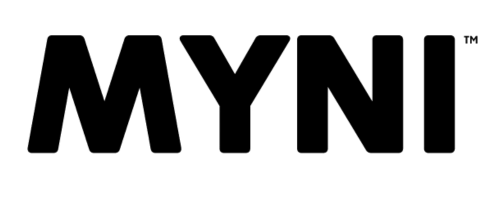Plastic is plaguing the ocean. This material is overproduced, not recycled enough, and it’s a resource that often ends up in our seas. Plastic can then continue its journey in the natural habitat of many species. In total, 3800 marine species are impacted by it. They get stuck in bags, choked by single-use straws or simply eat plastic because it’s present in their environment. Over time, plastic disintegrates into smaller fragments that can end up in fish, in our plates and bottles of water. It’s the danger of microplastic.
So, how do we reduce plastic pollution in the ocean? We’re not helpless when it comes to this problem. Adopting habits that are respectful of the environment and encouraging people around you to follow your example are excellent ways to have a positive impact. Continue reading to know more about the current situation in our oceans and learn how to improve your own behaviours.

Marine pollution in numbers
Understanding the facts of marine plastic pollution is the first step to modifying your daily habits. Today, 11 million tonnes of plastic end up in the ocean every year. We’ve seen pictures of these plastic patches with bags, bottles, packaging, toys, sunglasses and other objects gathering in water, but the situation is even worse. Not only does this material cluster on the surface, but it also lingers in deep sea level. Experts have estimated the amount of underwater plastic to be 11 billion tonnes. This type of pollution takes even longer to disintegrate and disrupts more species along the way.
What can I do about ocean pollution?
Any article about plastic pollution must also offer some solutions to the matter at hand. We can sometimes think that as individuals, we don’t have that much power against big corporations polluting on a massive scale. However, smaller eco-friendly reflexes promote a systematic change. These adjustments also help us feel more responsible and think twice before overconsuming.
-
Pick the right sunscreen
The word “ocean” makes us think of sunny summer months, beachy waves, and… sunburns. Did you know that your choice of sunscreen has an impact on our blue seas? Indeed, most of these sun protection lotions include billions of microplastic fragments to give them a silky texture, help combine ingredients and make them water-resistant. They also contain chemicals such as oxybenzone which leads to coral bleaching. To avoid this issue, take a close look at the ingredients list of any sunscreen you’re thinking about buying. Lotions with mineral protection are much kinder to the ocean’s ecosystem, and they’re a great alternative for your beach holiday.
-
Opt for reusable products
This can sound like obvious advice, but it’s an important one. Avoid single-use plastic bottles and bags. Instead, you can invest in bottles made of wheat straw for your cleaning products and get a fabric bag to do your shopping. Our clients are delighted with our reusable range. Ana K. commented that “It's a step forward in the fight against waste, while looking fine doing it” and we couldn’t agree more!
-
Banish microbeads
Makeup and cosmetics are also at fault in terms of pollution. Microbeads are small plastic fragments measuring less than 5 mm that are often included in toothpaste, exfoliating products and other skincare formulas. These microbeads then find themselves in our sinks, plumbing and finally, the ocean. The Canadian government recently decided to regulate the production of these products to limit their impact. To ensure you don’t participate in the microbeads epidemic, opt for organic formulations without plastic, like our hand soap that turns from powder to gel. It’s the first one in the world to do so!
-
Try composting
A good alternative to plastic, recyclable or not, is of course biodegradable options. Composting is a great way to limit waste because, on average, it reduces landfill-bound trash by 40%. Want to kill two birds with one stone? Avoid microbead-rich liquid scrubs and try our compostable konjac sponge that’ll leave your skin super-soft. And if you want to go even further, switch up your paper towels for reusable ones. These items are often bleached with chlorine and worsen deforestation. Ours are reusable, biodegradable and super cute!

-
Recycle!
Reducing pollution is possible if you think twice before throwing away waste in the regular trash which tends to end up in landfills. To make sure your plastic waste doesn’t continue its journey into our water, check that a product is recyclable before buying it, rinse plastic packaging before putting it in the recycling bin and try to limit waste with challenges such as plastic-free July. Recycling guidelines can change and also depend on your region. Get all the information you need on the government’s inventory and learn the latest advice.

To conclude, not only does plastic threaten marine species, but it also affects us, as we also ingest microplastic everyday. Indeed, 80% of bottled water contains some, and each year, we consume more than 50 000 small fragments of plastic. It’s time to make a change, for future generations and the ecosystems impacted by this problem. A few changes can make a difference, and Myni can help you on the way.
Want to learn more? Read this article for more resolutions to make your daily life even kinder to the planet (and the ocean!)



